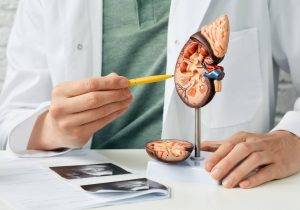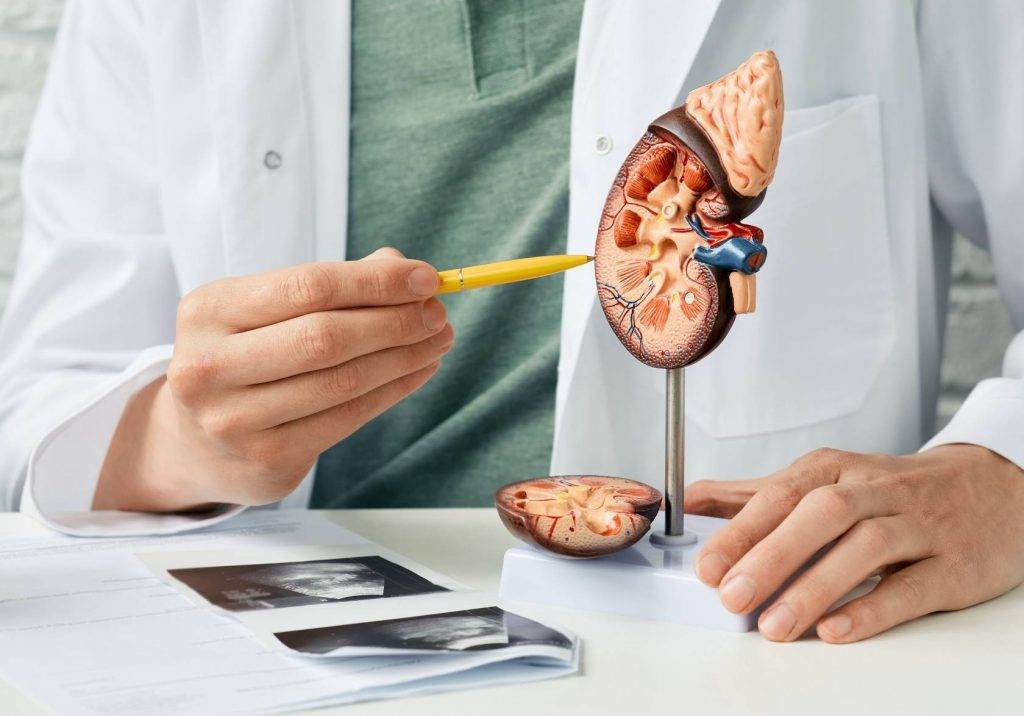The pair of kidneys is one of the most important organs in our body. It is commonly known for its excretory function – filtering 200 litres of blood daily to produce around 2 litres of urine. It is an important organ in maintaining the human body’s blood pressure and electrolytes. This article will dive into the ‘unknown’ functions of your kidneys.

Production of Erythropoietin
Erythropoietin (EPO) is a hormone that is produced predominantly by specialised kidney cells – interstitial cells. Functions of EPO include:
- Protects red blood cells against destruction from toxins
- Stimulates bone marrow stem cells to produce new red blood cells
Our red blood cell is essentially a ‘dead cell’, in the sense that it does not have a nucleus. Its main function is to deliver oxygen from the lungs to other body organs through the circulatory system. The specialised interstitial cell of the kidney detects and responds to low levels of blood oxygen to produce EPO. Increased EPO levels in turn drive up the amount and quality of red blood cells, ensuring the delivery of oxygen to body tissues.
When kidneys are damaged, EPO production subsequently reduces, which results in anaemia: a condition in which you lack enough healthy red blood cells to carry adequate oxygen to your body’s tissues. Common symptoms of anaemia include:
- Fatigue
- Weakness
- Pale skin
- Irregular heartbeats
- Shortness of breath
- Cold hands and feet
- Headache
Anaemia has many other causes, including iron and/or vitamin deficiency, bone marrow disease, pregnancy etc. It’s important to consult your doctor if you suspect that you may have symptoms of anaemia.
Activation of Vitamin D
Vitamin D is a hormone that controls calcium levels in the blood. It increases intestinal calcium absorption from food and decreases renal excretion of blood calcium. Calcium is the main component of bone and teeth.
The ultraviolet (UV) in sunlight converts a precursor molecule in our skin to an inactivated form of vitamin D. The kidneys then convert the inactivated vitamin D from food and supplements or the sun into the active form that is needed by the body.
When the kidneys are damaged, the function to activate vitamin D is drastically reduced, along with blood calcium levels. The direct result of which is osteoporosis: a condition where bones become thin, weak and fragile. Common symptoms of osteoporosis include:
- Back pain: caused by fracture or collapsed vertebra
- Loss of weight
- Frequent bone fractures
Osteoporosis could also be caused by low calcium intake from food, a pituitary tumour, long-term steroid uses etc. It is most common in older women and patients with chronic kidney disease. Consult your doctor if you have any of the above symptoms.
Metabolism of Medication
The kidneys not only filter the waste and toxins from our blood, but they also metabolise some wastes to make them easier to be excreted. Common pain medications like morphine and paracetamol are modified when passing through the kidneys and are then excreted in the urine. Experimental renal disease has been shown to reduce drug metabolism in the diseased kidney as compared with the contralateral normal kidney.
It’s important to let your healthcare practitioner know if you have chronic kidney disease when prescribing medications, as doses vary and should be tailored to your remaining kidney function.
Maintenance of Acid-Base Balance
The human body is built to naturally maintain a healthy balance of acidity and alkalinity. The normal blood pH level is 7.40 on a scale of 0 to 14, where 0 is the most acidic and 14 is the most basic. Kidneys help maintain this balance by excreting acid from the blood to urine and preserving bicarbonate from the urine back to the blood. Patients with chronic kidney disease usually develop a condition called metabolic acidosis where their blood is too acidic. Common symptoms include:
- Confusion
- Fast heartbeat
- Nausea and vomiting
- Loss of appetite
- Weakness and feeling tired
Contact your doctor immediately if you have any of the above symptoms. Diagnostic tests can be performed to detect the exact blood pH levels for further treatment.
For more information on daily routines that might be hurting your kidneys, click here.

